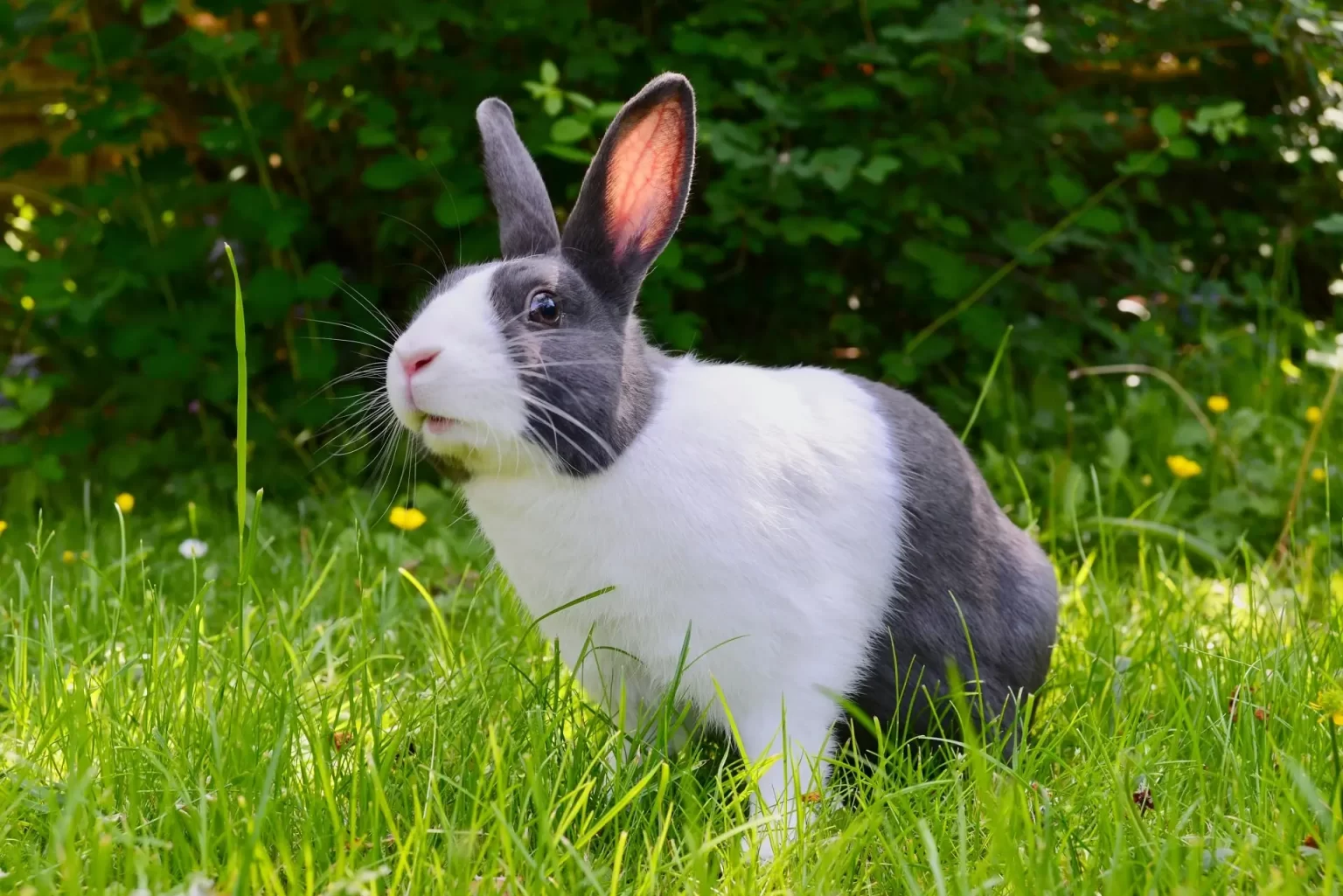Who was never convinced to eat carrots as a child to have a good vision like that of rabbits? This idea that animals can see well is often used to convince children to eat vegetables, but is this true? After all, do rabbits see colors and shapes very well? Do rabbits see colors? Discover some interesting facts about the species
With so much cuteness, it’s almost impossible not to give in to the desire to have a rabbit at home. If this is your case and you are looking for information about the species — including, knowing whether rabbits see colors — you are in the right place! Continue following us and learn more about this fantastic jumper.
What are the rabbit’s eyes and vision like?
In addition to knowing whether rabbits see colors, knowledge about their eyes is enriching. Starting with your peripheral vision, which reaches almost 360º. This means that you will never be able to sneak up on him. Rabbit eyes have a single blind spot, in front of their nose. However, this is not a problem for the toothy cat, as it has a multitude of tactile hairs in this region.
Because it is prey, the rabbit’s vision is excellent. He sees well both during the day and at night and has a perfect sense of depth and distance, necessary to see an approaching predator.
Furthermore, pet eyes come in various colors, with brown being the most common. The red eyes of white rabbits indicate that this pet is albino. This tone occurs due to the presence of blood in the vessels in the region and the lack of melanin pigment in the iris, which gives color to the eyes. Interesting, isn’t it?
What colors do rabbits see?
But after all, do rabbits see colors? The answer is yes! We know that these animals see different tones because they have cells responsible for capturing colors in their eyes, which are cones.
Humans have three varieties of these cones, while rabbits only have two. This means that they see with a smaller palette of colors than we do. And what colors do rabbits see? They are believed to see green, and blue and their variations.
Vision as good as humans
There is only one question to which we still don’t know the exact answer: how do rabbits see colors? Experts still can’t say whether they see colors as vividly and with as many spectrums as we do.
So how does the rabbit see? He sees the same way we do when we have good vision: with focus and without distortions. Of course, like humans, his vision becomes impaired with age.
Other curiosities about rabbits
Would you like to know more about rabbits ’ vision? Know that this pet has several other curiosities, both about its behavior and its anatomy. How about learning other interesting facts about them that will leave you even more fascinated?
Rabbits need to eat their cecotropes
Cecotrophs are a part of the food bolus that ferments for a long time in the eared cat’s cecum and, when they exit through the anus, they are consumed immediately. It’s not feces. In fact, it is a nutrient-rich food.
If the animal is prevented in any way from ingesting cecotrophs or does not produce them due to a diet low in fiber, it will have serious nutritional deficiencies, as this food contains proteins, vitamins from complex B and K, and volatile fatty acids.
The origin of rabbits is controversial
Some people say that rabbits originated in southern Africa and migrated to Europe. However, others claim that its origin is in Europe and that it was later spread around the world by travelers interested in its production.
What is known for sure is that they have been bred for more than 2 thousand years for the use of their skins and meat and that they were already domesticated in the Middle Ages by European monks. However, the rabbit was only recognized as a pet in the 1930s.
Your teeth grow non-stop
The rabbit’s teeth grow constantly, but it is not a rodent, but a lagomorph! Just like rodents, rabbits need to wear down their teeth so that they don’t grow excessively and hurt them.
Therefore, always leave hay available, as well as toys for him to chew on. Otherwise, the pet will have trouble eating. For a rabbit, 12 hours without eating can be fatal!
Rabbits are a bit “like cats”
Rabbits have many similarities with cats: they bathe with their tongues, which is why they can have hairballs in their intestines. They are also very prolific and use the litter box!
Speaking of hairballs, if your rabbit doesn’t have a diet rich in fiber, it will form these balls. As they do not vomit, they will most likely become trichobezoars — an accumulation of hair mixed with food that obstructs the animal’s intestines. Hay is the ideal food to meet your rabbit’s daily fiber needs.




